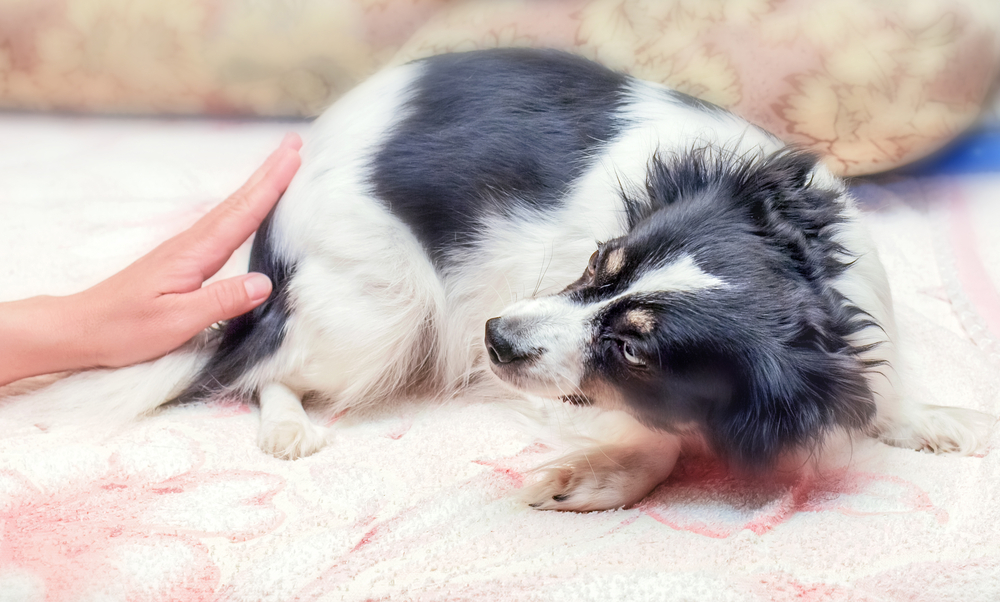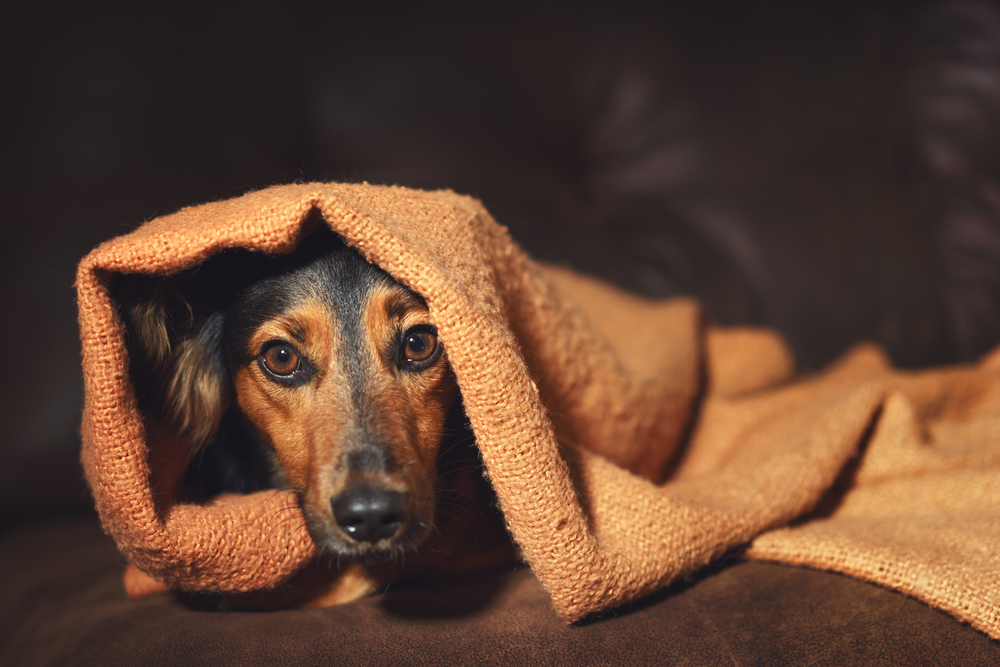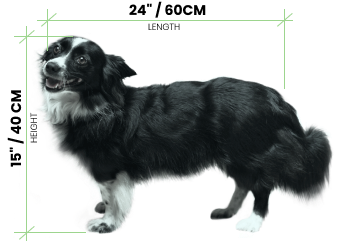As our four-legged friends get older, their behavior changes. You might have noticed your pet slowing down on walks, or that their sight or hearing is deteriorating, but you might be wondering why your senior dog is panting at night.
Older dogs often suffer from anxiety at night and understanding why is key to finding ways to make them feel more relaxed and make their senior years as comfortable as possible. Panting, restlessness, barking, and pacing are the most common signs you’ll spot that might indicate a problem, and there are many reasons your pet might be feeling this way.
What Causes Anxiety in Senior Dogs at Night?
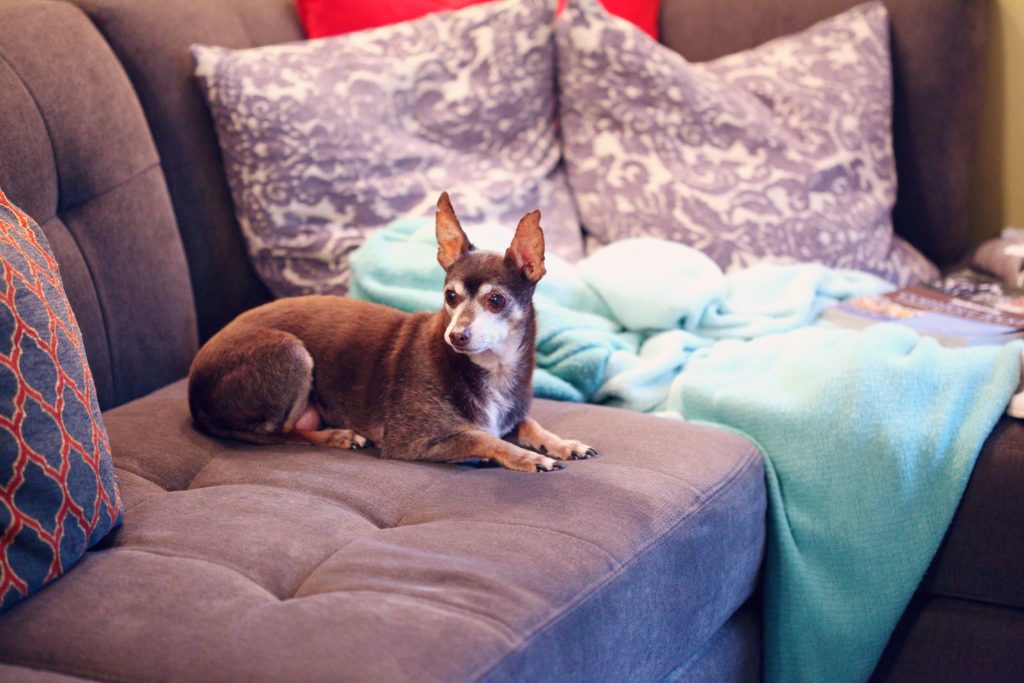
Pain
As dogs get older, they are likely to develop health problems. Many of these conditions can cause pain and discomfort, such as osteoarthritis, liver and kidney disease, some cancers, and dental pain. You might have noticed your dog not wanting to walk as far, climb up stairs, starting to go lame, or groaning occasionally, but your dog’s night-time panting can also be a sign that they are uncomfortable as panting is a common symptom of pain.
If you have noticed your dog panting a lot, then it’s vital that you get them checked over by a veterinarian so that they can receive the right treatment to begin feeling comfortable again.
Cognitive Dysfunction
Canine cognitive dysfunction is a recognized condition similar to Alzheimer’s in humans, and widely affects senior dogs. It has a range of physical and psychological symptoms including memory loss, confusion, restlessness, changes in eating habits, and changes in sleeping patterns.
Dogs with cognitive dysfunction often wake in the night feeling confused and disorientated, which makes them feel anxious. Panting is a very common symptom of anxiety in dogs, as well as pacing, barking, and restlessness. Dogs with cognitive dysfunction often sleep more during the day, and less at night, and this nocturnal habit can be challenging for pet parents. If you are worried your pet may be suffering from cognitive dysfunction, then it’s important to get him assessed by a veterinarian, as there are treatment options available to help him feel more comfortable.
Loss of Bladder/Bowel Function
Unfortunately, as dogs get older, they sometimes have less control over their toileting habits, resulting in accidents in the house, particularly at night when we are not around to let them outside.
You might notice your pet pacing, barking, or knocking at the door in the early hours, which can seem frustrating for their parents. But your pet is likely to be desperate as they just can’t hold it through the night anymore. Accidents in the house are common too, and dogs know that this is wrong, so the act of going to the toilet indoors can also stress them out as much as being desperate to go!
A check-up at the veterinary clinic is crucial if your dog is experiencing these issues, as incontinence can be managed effectively with medication.
Deteriorating Senses
Just like humans, dogs start to lose their senses of sight and hearing as they get older. This can be confusing and disorientating, especially at night when there is little/no light to help them. During the day, we become our dogs’ eyes and ears, so with us sound asleep in bed they feel more anxious.
How to Calm An Anxious Dog at Night
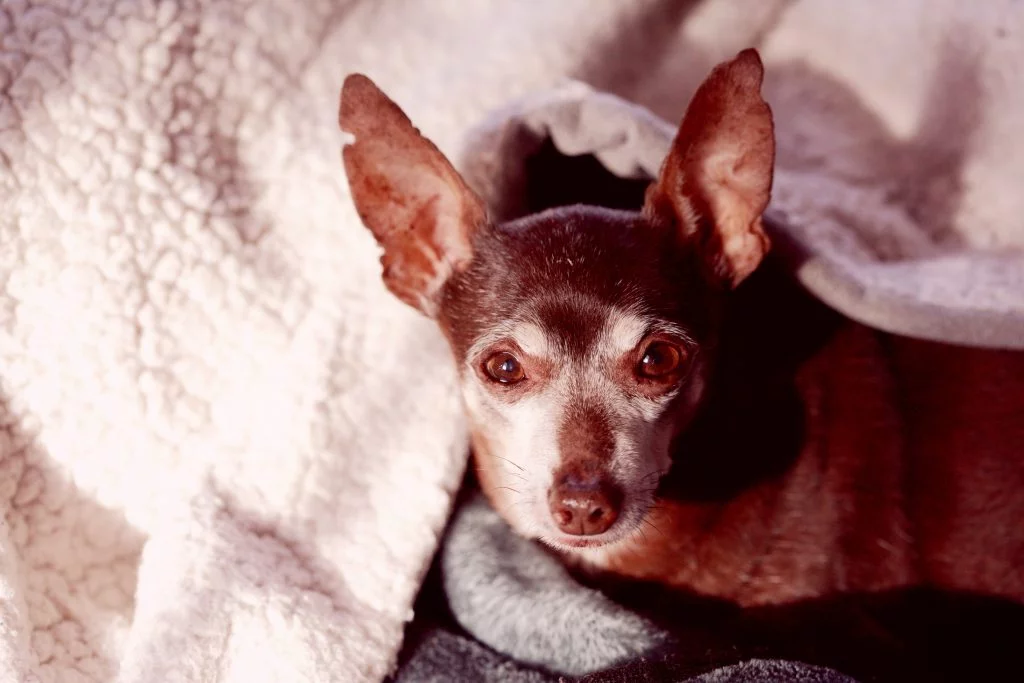
Once you have identified the cause of your dog’s night-time anxiety, and you have spoken to your veterinarian to rule out any underlying causes, there are lots of ways you can help your pet to feel relaxed and comfortable, and ensure you both get a good night’s rest!
Exercise
Exercise is really important when it comes to keeping your dog happy, as well as tiring them out ready for a good night’s sleep. With older dogs, you must remember to adapt their exercise routine according to their needs, as they might be slowing down and not able to do as much. Exercise is also a great opportunity to spend time with your pet, and your company and physical contact helps them to feel safe and comfortable.
Routine
Dogs are creatures of habit, and routine is very important for them – without it, they can become anxious. Try to maintain the same routine throughout the day and evening such as meal times, exercise, and bedtime.
Bedding
Providing the right bedding for your senior pet is crucial to allowing them to get a good night’s sleep. Choose something soft and deep, with plenty of cushioning to help support their joints, and add an extra blanket to keep them warm as older dogs tend to get cold more easily.
Environment
Providing some light for your senior pet at night, especially if they are losing their vision, will help them to see their surroundings more clearly, and prevent them from becoming disorientated or confused. If they can see their bed, water bowl, and the door they will feel less anxious.
Temperature is also important as older dogs feel the cold, so make sure their bed is away from any drafts, and they have enough blankets.
Anti-anxiety supplements
There is a wide range of products on the market designed to help reduce anxiety in dogs such as nutraceuticals, plug-in adaptors, collars, and room sprays. These products might help your dog to feel more relaxed at night, and your veterinarian can advise you on what would be most suitable for your pet.

